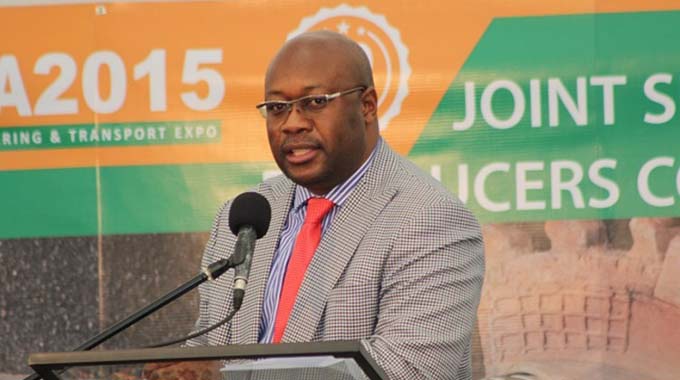EDITORIAL COMMENT: Mining must anchor economic revival

Mines and Mining Development Minister Winston Chitando, made startling revelations when he told a Chamber of Mines indaba in Victoria Falls recently that little to no exploration of mineral reserves was happening in Zimbabwe.
Minister Chitando said lack of investment towards the discovery of new mineral deposits on existing operations as well as greenfield projects was unsustainable and created uncertainty over the future of this strategic sector that hold vast potential to drive Zimbabwe’s economic turnaround.
To be more graphic, the minister pointed out that there were only three exclusive prospecting licences as at December last year, implying that there was virtually no mineral exploration currently happening in the country.
The minister was certainly on point given that the mining sector is one of the most important economic sectors in light of its contribution to the gross domestic product, foreign export earnings inflows and job creation.
We should hasten to say though that the minister, who took over the reins only in November last year, realises the urgent importance of attracting investment into exploration of mineral resources.
The minister also indicated that Government was aware of the fact that the reason Zimbabwe had performed dismally in the area of mineral exploration was the perceived country risk by investors who were sceptical of former President Mugabe’s policies.
Further, the minister also stressed the fact that investors had been apprehensive about committing their capital in Zimbabwe due to policy inconsistency, a legacy of the previous administration the new dispensation is working tirelessly to change.
Without a shadow of doubt, mining leads to development of key infrastructure such as construction of roads, airports, railway systems and schools among other benefits.
Mining accounts for over 60 percent of annual foreign exchange into Zimbabwe, contributing 12-16 percent of the country’s GDP and employing over 65 000 directly and indirectly, yet little investment is going into process that guarantees the future sustainability of the sector.
The mining sector, if put on sustainable growth path on the back of active exploration, can help the country realise many other benefits that include investment into extraction of various minerals, technology and skills transfer, as well as supporting other value chains.
President Mnangagwa’s administration also recognises the centrality of the mining sector to economic growth and development and has thus befittingly designated the sector as the driver of the economy in the short to medium term.
Government, cognisant of the potential and importance of the mining sector, targets to grow it to an $18 billion industry by 2030, while the sector will play a key role towards the vision of making Zimbabwe a middle income State by that time.
For 2018, Finance and Economic Planning Minister Patrick Chinamasa expects the sector to generate $3,7 billion in export earnings from $2,6 billion the previous year.
Similar sentiments were shared by Chamber of Mines president Batirai Manhando, who said that while Zimbabwe held limitless mineral potential, it remained largely under explored with little capital going into exploration.
He said according to the S&P Global Market Intelligence report for 2017 on mineral exploration trends, non-ferrous metals expenditure increased to $8,4 billion from $7,3 billion in 2016.
Of that investment into exploration, Africa attracted 14 percent, which went mainly to DRC, Tanzania, Burkina Faso and South Africa. Mr Manhando said if Zimbabwe’s mining industry was to sustain growth, it must as a matter of priority attract significant investment into exploration.
It emerged at the mines annual meeting in Victoria Falls that Government on its part, also needed to do more and provide incentives to attract significant investment into mining. This is because nearly 80 percent of investment into exploration does not result in mineral discovery.
Sadly, while Government had started working on an exploration law in 2015, which would also provide for establishment of a State exploration company and framework, the process has dragged on and is yet to be completed.










Comments